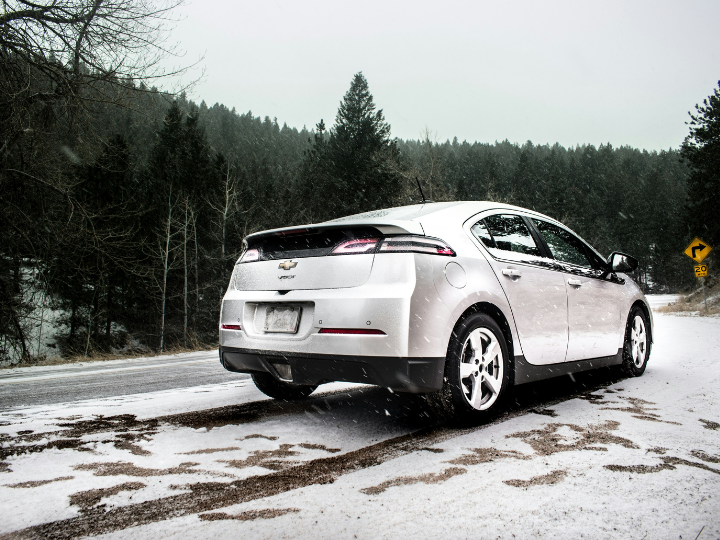The Evolution of Electric Vehicles In Canada
May, 12 2022
Car manufacturers have been looking for ways to make transportation more reliable and affordable for nearly two centuries. In recent years, they have focused on manufacturing processes that are also environmentally friendly. Electric vehicles (EVs) are now the alternative powertrain of choice.
The Canadian government supports cleaner air innovations, and has been working hard to ensure that Canada keeps up with other countries in the area of manufacturing electric cars and trucks. One of the concerns on the government’s radar is how to make electric cars more affordable for Canadian residents.
We are providing a short review of how the EV market has evolved, what the Canadian government is doing to promote EV use, and what the future of EV Canada could look like moving forward.
How Has the Canada EV Market Evolved?
The evolution of the EV market has been slow but steady. Believe it or not, the first electric vehicle dates back to 1830. Compared to gas or steam-powered cars, electric cars were quieter and less smelly, making them popular during the 1900s, especially with women.
The first hybrid auto was invented by Ferdinand Porsche in 1901, the legendary inventor of today’s Porsche models. However, the buying public was not quite ready for it. The Model T, a gas-powered car, was mass-produced starting in 1908. It quickly became popular because it had an electric start, and it was very affordable.
Gas-powered cars soon became the norm, and interest in EVs faded significantly during the 1970s. At that time, no one gave too much consideration to carbon pollution. That all changed in the 1990s when Toyota began mass-producing the Prius, which is a hybrid. Other carmakers soon began producing their own hybrid models. Tesla came out with a hybrid in 2006, GM launched the Chevy Volt in 2010, and Nissan introduced the LEAF in 2010. By 2013, the prices for electric batteries dropped drastically, making hybrids and EVs much more affordable.
Between 2012 to 2018, the annual growth in EVs and EV heavy-duty vehicle sales grew between 60% to 140% each year. Much of the production occurred in North America, as well as in Europe and China, where governments instituted policies to promote clean air and tackle climate change.
Canada Supports Transition to EVs to Improve Air Quality
Prime Minister Justin Trudeau believes EVs can play a much bigger role in reducing air pollution. He would like to see more EVs on the road, yet he is concerned most Canadians cannot afford them.
The Canadian federal government has emphasized transitioning to a green economy and has allocated funds for it in the federal budget. Canada has goals to manufacture more zero-emission vehicles and charging stations, as electric vehicles have shown to reduce carbon pollution by as much as 20%.
Trudeau recognizes that while people understand EVs are cheaper to own in the long run, they require a large upfront financial investment. To promote EV sales, the federal government is offering up to $5,000 to consumers who buy an electric vehicle. That could prove to be a major incentive for Ontario EV sales. Merran Smith, executive director of Clean Energy Canada, shared how 80% of Canadians said they would consider purchasing an electric vehicle.
The federal government has also introduced mandatory sales targets for car dealers to make EVs 20% of their total sales by 2026. Moreover, the sales targets will increase to require dealers to sell 60% of their total sales in EVs by 2030, and 100% by 2035.
Canada has allotted $400 million for 2022 to expand charging infrastructures over the next five years to install thousands more charging stations. Moreover, Trudeau is not ruling out the possibility of increasing nuclear power.
How Canada Compares to the Rest of the World in EV Manufacturing
China produces 4.2% of light-duty electric vehicles in comparison with 0.4% in Canada.
China is also the leading producer of electric heavy-duty vehicles, although their share is relatively small at 0.1%. The heavy-duty manufacturing sector in Canada has grown significantly since 2010, and has increased exports and revenues in that market.
Overall, Canada is the 5th leading commercial vehicle producer in the world, having produced 1.4 million cars in 2018. Exports in heavy-duty vehicles were close to $3 billion in the same year.
The Future of EVs in Canada
To date, Ontario has been a major player in gas-powered vehicles with production facilities for Chrysler, GM, Ford, Toyota, and Honda. The same companies are making greater strides in EVs in the United States, China, and Europe.
As compared with other auto manufacturers around the globe that are preparing to boost electric car usage, Canada falls behind. Currently, Ontario only has one low-volume hybrid vehicle production plant. Unless something changes, Canada could fall behind other countries in EV production even more, which could have a major negative impact on their economy. Nonetheless, Trudeau is invested in finding ways to develop raw materials and a supply base to accelerate EV production to ensure Canada remains a viable part of the auto manufacturing industry.
Invest in Canada by promoting an investment in electric car batteries to support Canada’s EV efforts.
Something else Canada could do to remain a major player in the EV space is to continue the development of hydrogen fuel cell technology, especially in relation to heavy-duty vehicles.
Final Thoughts
It is amazing to think about how far electric vehicles have come over the last century or two. Likely, even more excitement will occur in the years ahead in the automobile production industry.
Electric vehicles are already improving environmental conditions, and the potential for getting to zero-emission status is bound to improve with each passing year. Ultimately, electric vehicles will allow everyone in the world to enjoy fresher, cleaner air, and perhaps save on their automobile maintenance costs, as well as on EV Ontario insurance.
At Duliban Insurance, we are committed to helping you get the best insurance coverage for your electric vehicle or gas-powered car. Give us a call to get a quote on your EV Canada car insurance today at 855-385-4226!












